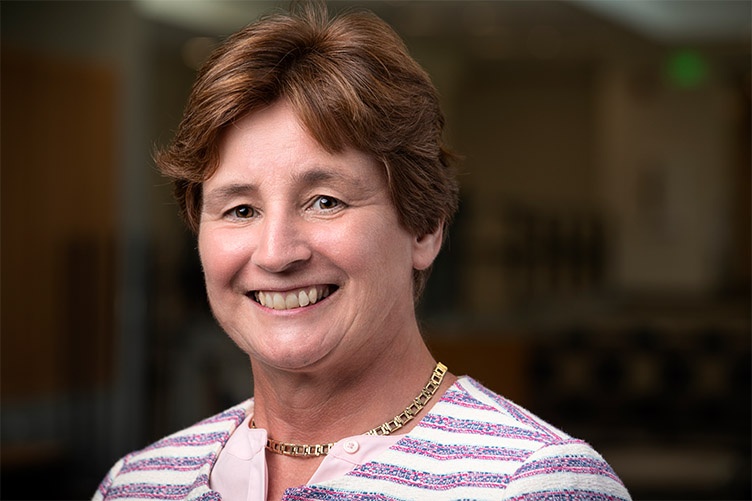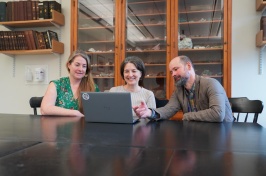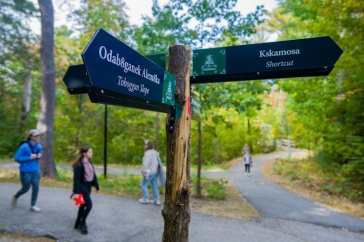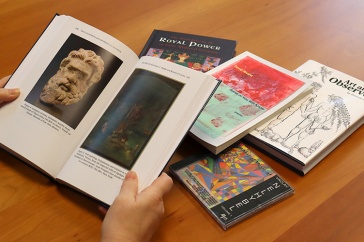
While serving as interim dean last year, I developed a deep appreciation for the many strengths of the College of Liberal Arts’ faculty, students and staff. Seeing first-hand their dedication to UNH and commitment to maintaining the College’s high standards, I am honored to be COLA’s dean.
This is a particularly exciting time for COLA to strengthen its centrality to the core mission of UNH and our relevance in the region and beyond. As the largest college, COLA will play an outsized role in ensuring that UNH realizes President Dean’s strategic priorities – student success and well-being, expanding academic excellence, embracing NH, and maintaining financial strength – and the ambitious goal of becoming a top 25 public university. Additionally, all COLA faculty and our five Ph.D. programs play a significant role in maintaining and growing UNH’s academic and research standing as a Research 1 institution.
Student success drives everything we do in COLA. In our classes and one-on-one advising, faculty help our students find a major that matches their passions and provide them with the knowledge and skills needed for academic success and timely graduation – preparation eminently translatable to a broad array of rewarding careers. I am privileged to have many opportunities to meet with our highly successful alumni and I continue to be impressed with their accomplishments. Their majors – spanning all of the liberal arts – have prepared them for impactful careers as executives in top banking, insurance, media, security and consulting companies; founding partners of advertising, public relations, research and technology firms; and award-winning journalists, writers, educators, artists and policy leaders.
Drawing on faculty expertise, the College is deepening its view of student success to integrate academic achievement with multiple forms of literacy. While ensuring we continue to equip our students with the core skills entailed in critical thinking, rigorous research methods, and oral and written communication, we are increasing attention to high level socio-emotional, civic and digital/computational intelligence. Efforts underway include developing new interdisciplinary cognates and minors, expanding opportunities for civic education through the highly successful Civil Discourse Lab and Model UN program, and building on faculty initiatives to broaden digital and computational humanities.
"Student success drives everything we do in COLA...faculty help our students find a major that matches their passions and provide them with the knowledge and skills needed for academic success and timely graduation..."
COLA has embarked on new connection and retention initiatives, especially in regard to COLA undeclared students, to help them identify courses and majors that fit well with their interests, talents and career aspirations. For example, we’ve established a dedicated residential floor in Alexander Hall for COLA undeclared students with social programming, and major and career-oriented events. A new pre-arrival program, Spark, helps connect COLA students to each other and the College.
Our faculty appreciate that student success depends on enriched experiences beyond the classroom. That’s why the College is committed to internationalization and the continued success of our faculty-managed, popular study-abroad programs – ranging from several European destinations to Belize, Cuba and China. Internships are another critical component, and we are working with local organizations and companies as well as with alumni to expand the number we offer. Similarly, our Professional and Career Success staff are working diligently to make sure our students are ready to be successful on the job market. Their initiatives include arranging work-place visits and meetings with successful alumni. (See related story.)
Student success and academic excellence depend on UNH becoming a more diverse and more inclusive community. We’ve renewed our focus on retaining minority faculty and are intensifying our efforts to increase diversity and inclusion in our curricula. Examples include the new diversity themes infused into First-Year Writing courses and a new minor with a focus on indigenous populations.
COLA faculty make many contributions to the lives of New Hampshire’s citizens, not the least of which are our disciplinary contributions to workforce training. The higher quality of education we offer to our students, the greater the likelihood of their becoming highly productive contributors to society who can readily adapt to short- and long-term economic and demographic changes. As New Hampshire becomes increasingly diverse, the international exposure we give to our students, both in the classroom and abroad, will surely broaden their perspectives in ways that can help make New Hampshire a state known for inclusive excellence.
As we look to the future, we are entrepreneurial and proactive in bolstering our financial strength. Student enrollment, retention and timely graduation rates are key, but we’re also taking stock of our existing degree programs and exploring ways to sharpen their relevance while maintaining their core intellectual content. Financial strength also depends on increased research grant revenue, a goal that intertwines with the College’s commitment to incentivize research excellence. The College continues to work with UNH Advancement to expand COLA’s gift funds for a range of priorities from scholarships and internships to capital funds for improving our arts facilities. I am always eager to apprise donors of how impactful gift funds are. The College is extremely grateful for their generosity.
I am enjoying working with the many stakeholders in the Liberal Arts community to capitalize on our strengths to further enrich our stellar curriculum; the reputation and impact of our cutting-edge research, scholarship and artistry; and the vitality of COLA as a dynamic learning community in which academic achievement, individual well-being and inclusivity are our anchoring values.
Michele Dillon was named dean of the College of Liberal Arts in May, 2019, after serving in an interim role for a year. A member of the sociology department for 18 years, Dillon served as chair of the department for six years and as a faculty fellow in the office of the senior vice provost for engagement and faculty development.
-
Written By:
Michele Dillon | College of Liberal Arts | michele.dillon@unh.edu





















































